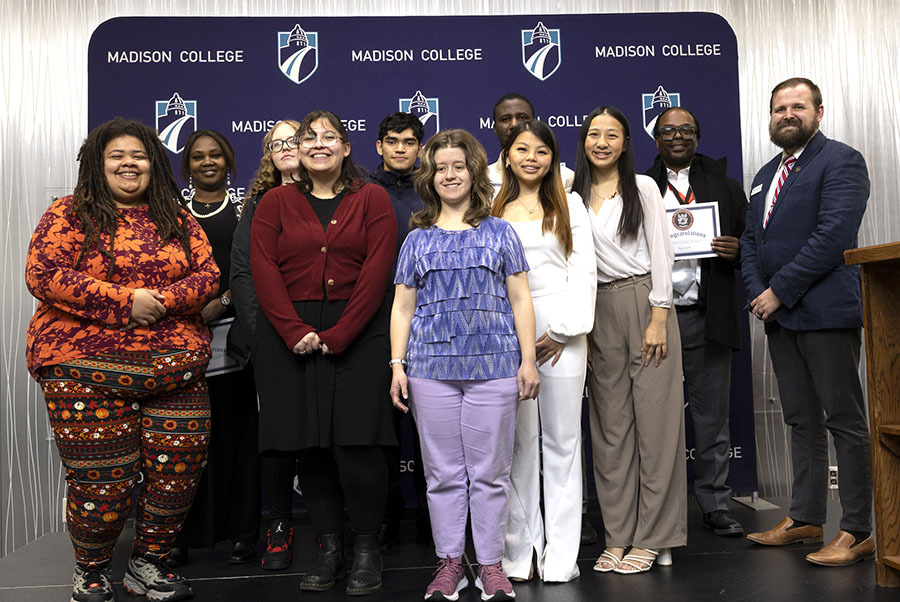Celebrating influential figures in Black history
February 15, 2023
February is Black History Month, and as such, it is customary to commemorate influential Black historical figures. After all, history has traditionally been told through whitewashed lens. Many are pushing back against this by incorporating the stories and accomplishments of Black people into history. Such efforts are reasonable and should be supported. Below is a sampling of just a few of the many amazing Black people America has been blessed with.
Frederick Douglass
Frederick Douglass was born Frederick Augustus Washington Bailey in Talbot County, Maryland sometime around February 1818, according to Encyclopedia Britannica’s article “Frederick Douglass.” Slaves generally did not know their birthdates (likely an intentional consequence of the dehumanizing institution known as slavery) and Douglass was no exception. He suspects his slave master, Captain Aaron Anthony, fathered him, making him a part of the mulatto phenomenon.
Douglass said that while his experience as a slave child did not involve backbreaking work, the combination of physical dilemmas in the form of hunger and cold and psychological trauma resulting from watching Anthony beat slaves until the blood gushed from them like a water fountain made his childhood experience far from ideal. Douglass’ master, Captain Anthony worked for Colonel Edward Lloyd, a shipmaster with several plantations and hundreds of slaves working for him.
Douglass’ mother, who walked several miles to see her son, died when he was only 7 years old, contributing to a traumatic childhood. Some years later, Captain Anthony died and Douglass went to live with the Aulds. (Thomas Auld was the son-in-law of Captain Anthony).
While with the Aulds, Douglass learned to read and write, thanks to the help of his initially kind mistress, Sophia Auld. Reading made Douglass fully aware of the wretchedness of his condition, eventually leading him to successfully escape the institution (under a different master) and flee to the North.
Despite the Fugitive Slave Law, Douglass fought openly against slavery, writing for the liberator and allying himself with radical abolitionists like Wendell Philips and William Lloyd Garrison. Some have said that it was his alliance with Abraham Lincoln during his presidential term that motivated Lincoln to go radical and support Black emancipation and full rights and citizenship.
Douglass, like Harriet Tubman, embodied liberation and freedom to many Blacks, and his actions defied the institution of slavery. He proves that Blacks can succeed despite intense opposition and oppression, a vital lesson in today’s racialized America.
Booker T. Washington
Booker Taliaferro Washington was born into slavery in Franklin County, in 1856. As History.com notes in their article “Booker T Washington,” Washington’s mother worked as a cook for her master. Washington never knew his father. The conclusion of the long and bloody Civil War brought an end to chattel slavery. Washington’s mother moved her family to West Virginia, where she married a free Black man named Washington Ferguson.
While in West Virginia, Washington furthered his education while working on the side, first in a salt works, then a mine. While working at the mine, he heard of the Hampton Institute, a new educational institute founded by Samuel Chapman, who was “dedicated to improving educational opportunities for African Americans” (History.com). Washington enrolled and proved himself to be a stellar student, graduating and becoming the principal of the newly formed Tuskegee Normal and Industrial Institute located in Tuskegee, Alabama. While principal, Washington hired George Washington Carver as an instructor of agriculture.
Booker T. Washington dedicated himself to the advancement of African Americans, but he had unique ideas on how this should be accomplished. He delivered a famous speech in September 1895 in which he advocated for Black self-improvement through labor “(education), learning…trades, and investing in their own business,” as the Constitutional Rights Foundation points out in their article “Booker T Washington.”
Washington has been criticized and misconstrued for his position on segregation. He did not like discriminatory practices, but he supported segregation for the time being, advising African Americans to shift their focus away from political activism and concentrate instead on self-advancement. Washington believed in gradual emancipation: through hard work and perseverance, Blacks would prove their worth to white Americans and achieve equality and prosperity. Washington did publicly decry segregation and lynching, and secretly funded lawsuits fighting systemic racial oppression.
Ida B. Wells
Ida B. Wells, like Booker T. Washington, was born into slavery and emancipated by the Union’s victory in the American Civil War. As a young girl, a fever epidemic swept through Wells’ hometown, ending the lives of both her parents and her infant brother. Wells was forced to grow up quickly, and became a teacher to support her family.
Arlisha R. Norwood, in her article “Ida B Wells-Barnett,” informs us that Wells was politically active from a young age. In 1884, she “filed a lawsuit against a train car company in Memphis for unfair treatment. She had been thrown off a first-class train, despite having a ticket.” She won, but a federal judiciary later reversed the ruling.
The lynching of a friend prompted Wells to investigate cases of lynching. She wrote about her findings in a booklet and in a local newspaper. Though the resulting backlash and threats forced Wells to move to the North, she continued to advocate for Black rights by illuminating foreigners on the evils of lynching, and became active in the women’s rights movement.
She challenged white women suffragists for ignoring the problem of lynching and helped found the NAACP. Her numerous activist endeavors proved the intelligence of the Black person, regardless of gender.
Conclusion
Despite America’s numerous attempts to subjugate African Americans, Blacks have risen above the challenge and contributed greatly to American society. Their work reminds us of the progress America has made toward racial equality and should inspire us to do more. All people, regardless of race, are capable of the same feats and accomplishments and must be treated with equality. They deserve our efforts.































